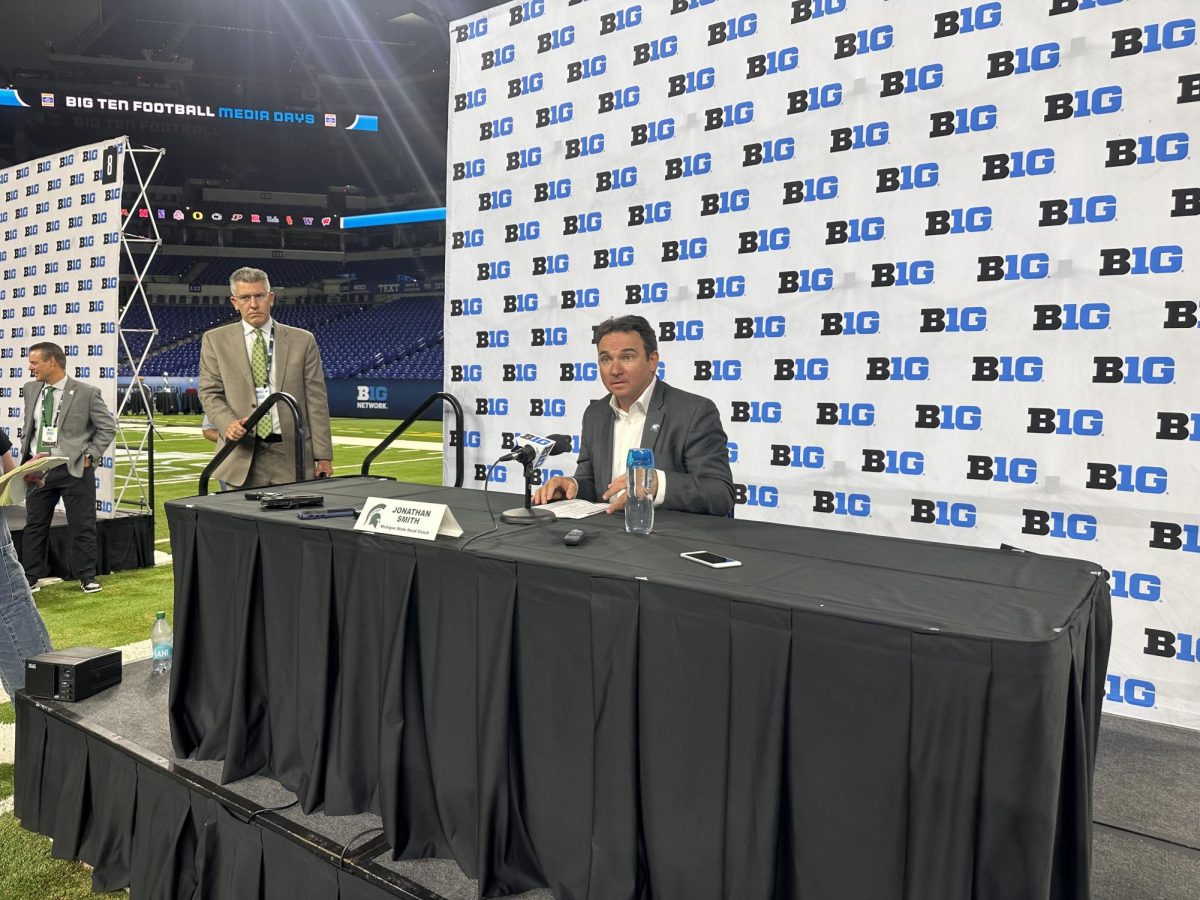The State – 03/16/23
March 15, 2023
Today’s weather forecast is predicting cloudy with rain developing later in the day with a high of 51 degrees and a low of 44 degrees.
What to do if your ID can’t unlock campus buildings
After Michigan State University introduced a new policy requiring ID cards to access academic and residential buildings from 6 p.m. to 7 a.m., students are already struggling to adapt.
MSU deputy spokesperson Dan Olsen said the issues students are facing could either be in the hardware or software of their ID cards.
For hardware issues like chip failures — where the card is tapped on the censor but doesn’t beep at all — students can go to the ID office and get a new card at no cost. The office is open 8 a.m. to 4:45 p.m. during the week or can be reached at [email protected].
If students are having software issues — where the censor beeps and flashes red indicating that they don’t have access to the building — they can email [email protected] to request access.
While the ID Office allocates and replaces IDs, it cannot reprogram them to allow access to the newly locked buildings.
What implementing college-based housing would mean for MSU
Home to over 50,000 students and spread across 5,200 acres, Michigan State University possesses one of the nation’s largest campuses and housing programs.
Its 27 undergraduate residence halls are split between five neighborhoods and present students with ample residential options.
While MSU’s housing program offers several degree-granting residential colleges, residential communities and special interest communities, it has been absent of a full-scale, school-based housing system.
School-based housing is a system in which students reside with peers in their major program and are in proximity to their physical college.
The question remains, what would implementing school-based housing entail for MSU’s housing program?
MSU Residence Education and Housing Services, or REHS, Associate Director for Communications Bethany Balks said moving to a school-based housing system is not something she’s heard REHS considering, but doesn’t think is impossible. She said enforcing school-based housing would require several different things, including student and faculty approval.
It’s important to note that many students enter college undecided about their primary and career interests. Data shows students often change their minds about their desired major or college, particularly in the second year, Balks said.
Accounting for students undecided on their major would not be the only issue facing the enactment of college-based housing. Balks said not all schools or colleges may have the resources or desire to build living-learning communities.
Despite such challenges, Balks said there are observable benefits to college-based housing, such as location and involvement. It would provide students with collaboration over shared academic interests and help develop a sense of belonging.
REHS also offers special-interest communities, including the Detroit M.A.D.E Scholars Program, College of Music, MSU Army ROTC and the College Assistance Migrant Program.
Balks said a full-scale college-based housing system would impact these established special-interest communities and cross-college collaborations.
How light pollution impacts East Lansing’s night sky
The night sky is something that many have looked up at in admiration for years, but depending on location, many have noticed that the number of stars they can see has faltered.
Light pollution, which is any sort of extraneous light that is not directed down and illuminates the night sky, is the culprit behind this lack of visibility. Director of Abrams Planetarium Shannon Schmoll said that light pollution has gotten worse over the years, making the night sky appear less dense with stars.
She described that due to light pollution, specific constellations or stars that typically can be seen by the naked eye, are no longer visible in most locations.
According to Schmoll, lack of visibility in the night sky at Michigan State University is inevitable, because it is both a large campus and located near a major city.
Because of this rise in LED lighting, the planetarium’s filter system is no longer as effective as it once was.
In order to increase visibility of stars and decrease light pollution in an area, Schmoll said it’s best to reduce the amount of lights one has. Another solution is shielded lights — lights that are covered at the top in order to reduce the amount that shines into the sky. Schmoll said shielded lights are also more energy efficient, since they require less energy to achieve sufficient brightness on a street or sidewalk.
When upgrading lighting, the MSU Infrastructure Planning and Facilities teams work to ensure that light on campus is facing downward to minimize light pollution, communications manager Fred Woodhams said.
Schmoll said the loss of night sky visibility is more than an aesthetic loss, but a cultural one as well.
Based on original reporting by Alex Walters, Thomas Cobb and Hannah Holycross.






























